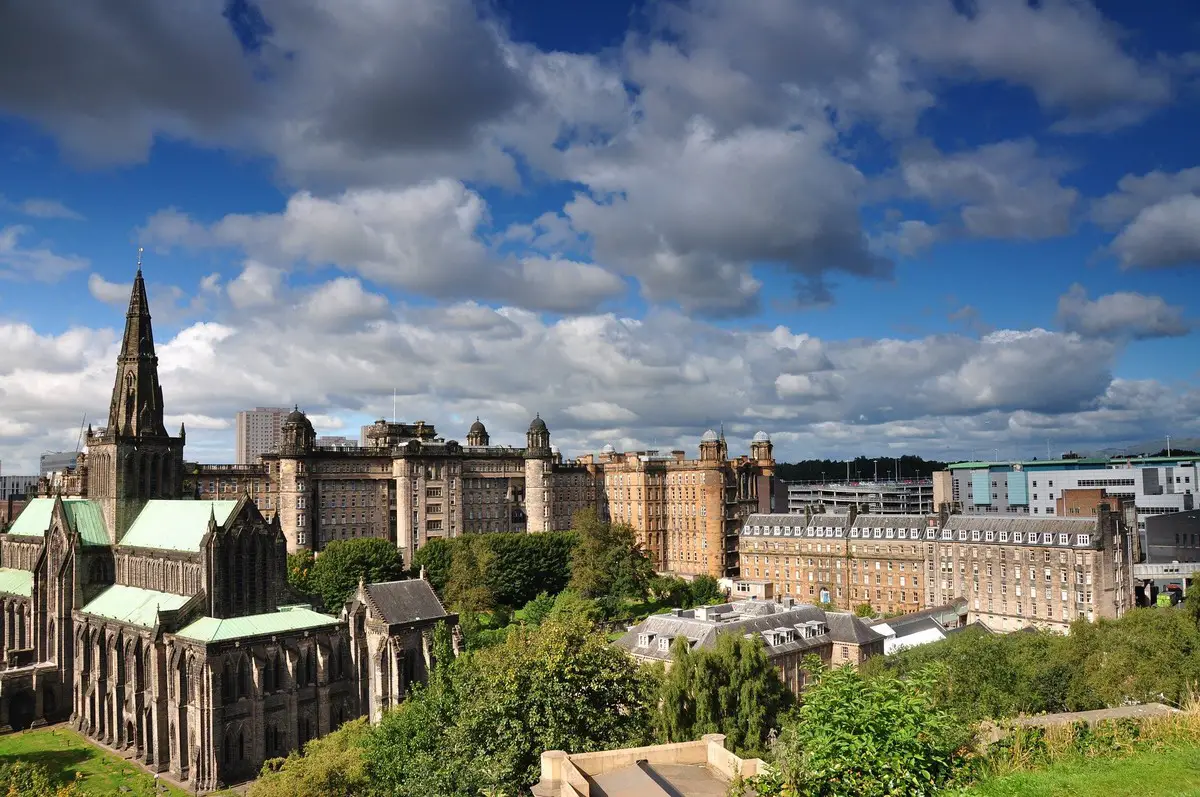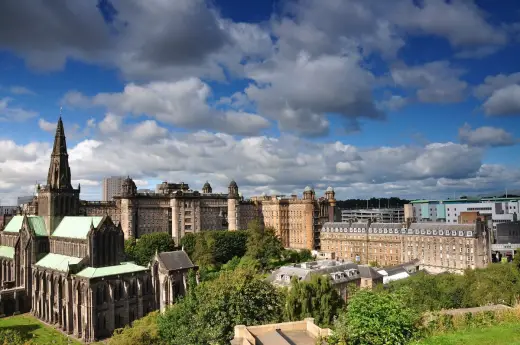How Glasgow uses technology to make eco friendly homes guide, Scotland houses building advice, Sustainable property tech
How Glasgow uses technology to make eco friendly houses
23 Sep 2021
Citizens of Scotland know the struggles of a harsh winter, where constant heating is needed to stay warm. Heating bills can reach around 150 pounds, which can be a large portion of many families’ salaries. The Home Group Housing Scotland association is trying to find new ways to decrease the heating issues that tenants have been having. Property managers have started the process of replacing the high energy consumption heating systems with an air-source heating pump system. This will both reduce the heating prices and carbon emissions.
How Glasgow is using technology to make homes more eco friendly
Glasgow is known for its classic sandstone properties, which were built during the 19th and 20th centuries. These buildings have beautiful stonework, their original fireplaces and high ceilings which although beautiful, tend to be damp and chilly. The upgrades to these buildings will be challenging but there are currently blueprints being formed to maintain the historical buildings, while improving their energy efficiency.
The new functions will be continuously checked by researchers, who will use this information to continue improving the upgrades. The main goal of this continuous research is to develop buildings that will become completely self-sufficient and will no longer have to rely on fossil fuels. The end goal for Glasgow is to reduce home power bills by up to 90 percent. Not only will they reduce their bills, but building owners will even be able to sell the clean energy that is generated by these buildings. Once people see an even larger incentive to become eco friendly, more people will aim to change their mindset.
Glasgow is always looking for renewable energy sources and they are looking to incorporate the Clyde River that runs through the city. The energy will be sourced similarly to the air-source heat devices. The Clyde river system will be using large water-source heat pumps which will use the heat from the river. This will then be pushed into homes, providing a low-carbon solution to the older heating systems. This system is already used by one district just outside of Glasgow and they are aiming to introduce a high-tech district to the center of Glasgow. This amazing initiative, which is currently more costly than traditional fossil-fuel electricity, but this will be improved over time.
Another form of research that is currently being conducted is to merge the computer and smart home IT systems into the newly upgraded buildings. There has been an uptake in the use of IT Support Companies all across Glasgow. This will allow water, electricity and other household systems to communicate with each other. The ability for these systems to communicate will allow them to understand energy usage for both individual and business use to reduce waste and cost. Tenants will also have the ability to monitor their usage which will allow them to find ways to reduce their household bills and cut costs. Buildings that incorporate smart home IT systems is attractive to new demographics as it makes life more convenient and makes managing your home a much simpler task.
Governments around the world are aiming to reach zero carbon emissions by 2050. This may seem like an unattainable goal but with the constant improvements in technology, this is something that can be achieved. The focus has shifted to making more practical changes to ensure that global warming can be reduced.
Driven by consumer demand, there are many new technologies being developed to reduce the long term effects of climate change. Glasgow is a part of 100 cities around the world, known as the C40 Cities Network who are working towards improving action against climate change. In November of this year Glasgow will be the host of the COP26 UN climate negotiations, where they will introduce new methods for cutting carbon emissions and finding funding for this initiative.
Aitken, the Glasgow City Council leader has stated that Glasgow has a goal of net-zero emissions by the year 2030. This will cost close to 30 billion pounds and 5 billion of this will be to make homes more energy efficient. This amount of funding is not possible for the government to deliver, which means that private investments will be required. The investment prospectus for the city is made up of 10 projects and will be released in time for the COP26 conference.
Comments on this guide to how Glasgow uses technology to make eco friendly homes article are welcome.
Strathclyde Building Designs
Glasgow Architecture Designs – Strathclyde architectural selection below:
Chryston Community Hub in North Lanarkshire
HMP Glasgow Masterplan : Barlinnie replacement
Comments on this guide to how Glasgow uses technology to make eco friendly homes advice article are welcome.

